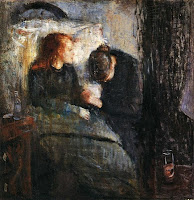Contemporary medicine in and of itself is complex: Trying to find a professional & personal "home" amidst the tethers and freedoms becomes an even more intricate task when an academic appointment is added to the clinical practice mix. This is on my mind recently, having passed the halfway mark of this Palliative Medicine fellowship. In earlier times, physicians were accountable primarily to their patients and their colleagues. Now they are accountable to governments, institutions and commercial organizations for their competence, performance and productivity, not to mention the cost-effectiveness of their activities.

The word cloud above was created from text in the article below. Food for thought: The authors explore relationships between health care's multiple stakeholders, particularly focusing on society's expectations of a physician and a physician's obligations toward society. Selected words have been assigned greater prominence to emphasize their significance in the source text.




